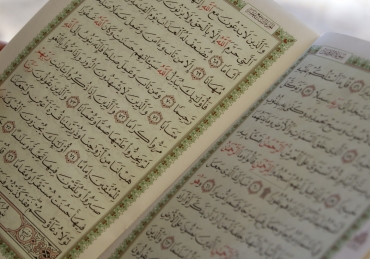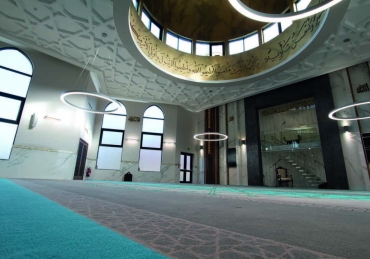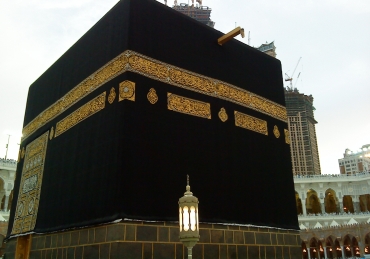Covid-19: Congregational Ṣalāh in Masjids from 4 July
بسم الله الرحمن الرحیم
The UK Government announced yesterday (23 June 2020) that places of worship including Masjids can re-open from 4 July 2020 for group worship subject to social distancing measures. The Government’s Guidance updated today (24 June 2020) states:
“Yes, from 4 July, places of worship can open for services and group prayer and strongly advised to follow COVID-19 Secure guidelines. You will be able to independently pray or hold a religious ceremony in a church, mosque, synagogue, temple or other place of worship. We advise that you limit your close social interaction in these venues to your own household and up to one other, wherever possible. When attending a place of worship, for ceremonies or services, it is important to observe the social distancing guidelines.” (Source: Coronavirus outbreak FAQs: what you can and can’t do after 4 July)
This development follows the opening of Masjids for individual worship, and al-Ḥamdulillāh, hundreds of Masjids across the UK are already open. In preparation for the new phase, can you kindly answer the following questions:
1) The Government is planning to reduce the 2m distancing to 1m with added precautions, although it advises 2m where possible. Yesterday, the Prime Minister said people would be encouraged to use ‘mitigation’ – such as face coverings and not sitting face-to-face – when less than 2-meter from each other but “where it is possible to keep 2m apart, people should”. In light of this, how much distance should be maintained in congregational Ṣalāh?
According to the World Health Organisation, 1m distance is safe, and many countries have already adopted this. Therefore, if the Government reduces the distance to 1m, this should be adopted for congregational Ṣalāh along with all the other necessary precautions. Congregational Ṣalāh does not involve sitting face to face so this would mitigate any potential risks. This will also reduce the gap between those performing Ṣalāh and also increase capacity.
2) Is it permissible to organise multiple congregations for the same Ṣalāh in the same Masjid, because social distancing reduces the capacity of Masjids?
It is permissible to organise multiple congregations in the same Masjid for the same Ṣalāh based on need. Under normal circumstances, this should be avoided unless there is a valid reason.
3) If more than one congregational Ṣalāh takes place in the Masjid, are there any rulings regarding this? Will the adhān and iqāmah be repeated?
There are no specific rulings in this regard. A different Imam must lead each congregational Ṣalāh. The Iqāmah will be repeated for each congregational Ṣalāh. However, the Adhān will only be given once, with the exception of the second Adhan before the Friday sermon, as outlined below.
4) What are the rulings of multiple Jumuʿah salah in the same Masjid? Will the two adhāns for the first Jumuʿah Ṣalāh suffice for subsequent Jumuʿah Ṣalāhs in the same Masjid? If the first Khuṭbah is broadcast online or via the receiver system, does the Khuṭbah need to be repeated for each Jumuʿah Ṣalāh?
Organising multiple Jumuʿah Ṣalāh in the same Masjid is permissible based on need. The first Adhān will only be delivered once at the beginning time. Subsequently, this first Adhān will not be repeated. However, the second Adhān just before the sermon will be repeated for each Jumuʿah Ṣalāh. Likewise, the Iqāmah will also be repeated before each Ṣalāh. The Khuṭbah will also be repeated prior to each Ṣalāh. However, a short Khuṭbah is sufficient.
5) Can the same Imam lead the Jumuʿah Ṣalāh twice?
The same Imam cannot lead the Jumuʿah Ṣalāh or any other obligatory Ṣalāh twice. However, it is permissible for the same person to deliver the Khuṭbah (sermon) more than once, although it is preferred that the same person leads the Ṣalāh and delivers the Khuṭbah (sermon), as outlined in an earlier answer.
6) Can we follow the ḥanbalī position that permits Jumuʿah Ṣalāh before Ẓuhr time begins, to accommodate multiple congregations?
According to the majority of scholars including the ḥanafīs, the time of Jumuʿah Ṣalāh begins when Ẓuhr Ṣalāh time begins. Therefore, Jumuʿah Ṣalāh cannot be performed earlier than this.
To enable multiple congregations within the Jumuʿah Ṣalāh time and the maximum number of participants, the following should be considered:
- Make use of the entire indoor area of the Masjid estate.
- Make use of the Masjid car park where possible, whilst complying with the Islamic requirements and social distancing measures. The congregation must stand behind the Imam, and it is not a prerequisite for the Imam to lead from inside the Masjid.
- Give Adhān at the beginning time and commence the first Jumuʿah Ṣalāh very soon thereafter.
- Shorten the Jumuʿah Khuṭbah (sermon).
- Dismiss the congregation immediately after the Imam says Salām and completes the Ṣalāh.
- Organise Jumuʿah Ṣalāh at regular intervals of 30/45/60 minutes as required. The several hours of Jumuʿah Ṣalāh time during the summer months should easily enable several congregations.
- Advise the congregation to perform Nafl Ṣalāh at home.
7) Should children under the age of 12 be discouraged from attending the Masjids?
There is no need to discourage children under the age of 12 from attending the Masjids, as long as they are accompanied with adults. Children who accompany their parents can stand next to their parents without any distance, in accordance with the Government’s guidance, or stand in the dedicated area for children, if the Masjid has made such arrangements.
For other related questions, please refer to the earlier answer on the 10 questions on the re-opening of Masjids.
Allah knows best
Yusuf Shabbir
3 Dhū al-Qaʿdah 1441 / 25 June 2020
Approved by: Mufti Shabbir Ahmad and Mufti Muhammad Tahir
(For Q&As, guidance & articles regarding Covid-19, click here)







